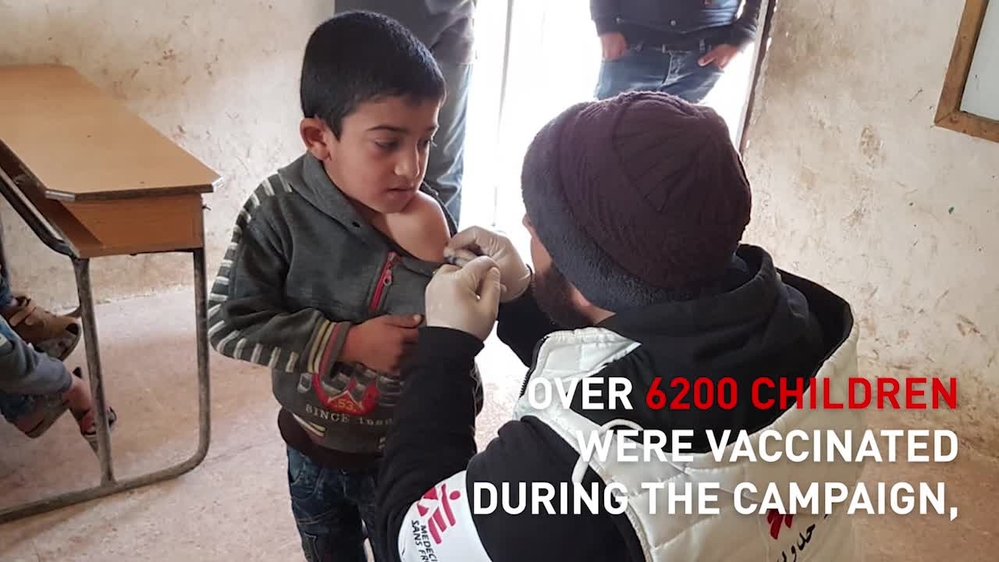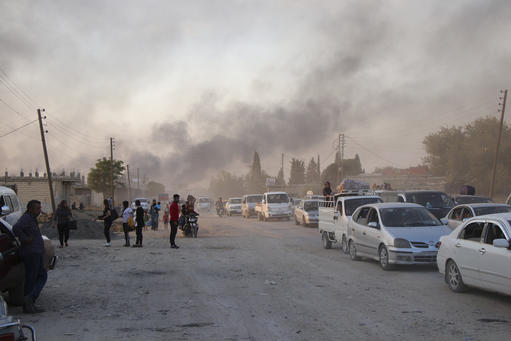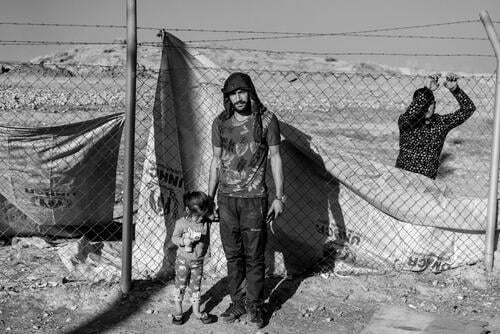Though the intensity of the fighting in northern Syria has decreased since 2020, some 2.7 million people remain displaced and live in precarious conditions. Meanwhile, the delivery of lifesaving cross-border assistance to northwest Syria remains compromised.
Funding continues to decrease and only one of the three border crossings authorised by the United Nations remains open, while the Semalka/Fishkhabour crossing point, on the northeast border with Iraqi Kurdistan, has been closed.
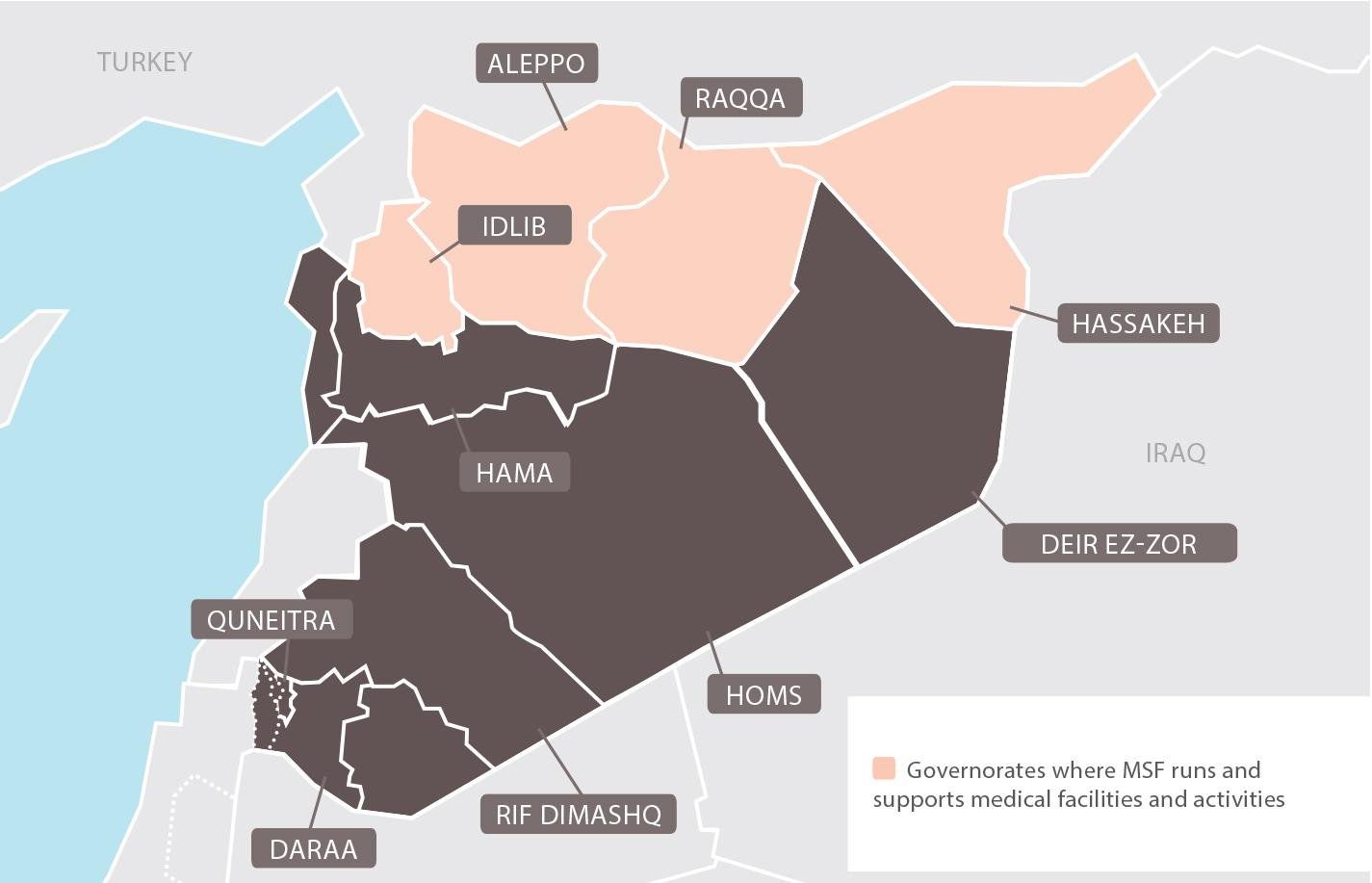
Northeast Syria
Northeast Syria remains heavily affected by the Syrian conflict with widespread medical and humanitarian needs across the region.
Years of conflict and underfunding have eroded the healthcare system in northeast Syria. Health facilities, including major hospitals, such as the Raqqa National Hospital, remain heavily damaged by the conflict, while others lack sufficient medical supplies or qualified staff. As a result, many people cannot access the medical care they need, particularly for non-communicable diseases and complex medical conditions.
Additionally, civil infrastructure has been repeatedly compromised, severely affecting people’s access to water. The Alouk water station, serving an estimated 460,000 people in Hassakeh province, has suffered 24 suspensions of water supply since November 2019, the longest for 42 days. This, combined with the severe reduction in water flowing down the Euphrates River, has contributed to an increase in waterborne diseases, as well as increased food insecurity and higher risk of malnutrition.
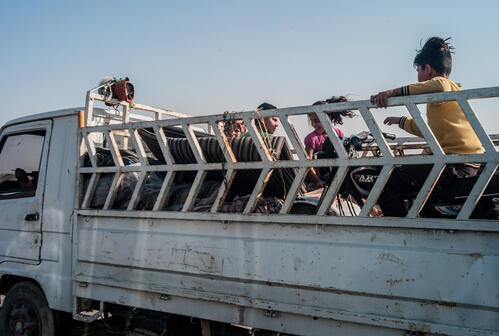
Displaced people
There are almost 700,000 displaced people across Northeast Syria who are almost entirely dependent on humanitarian assistance. People in camps and informal settlements often lack access to appropriate sanitation and live in overcrowded conditions, while unable to implement standard preventative measures for COVID-19, such as physical distancing and hygiene measures.
This includes Al-Hol camp, which hosts approximately 56,000 people, more than 90 per cent of whom are women and children. Boys and men are often taken from the camp and put in detention centres.
The situation in the camp is shameful. There is a pressing need for effective healthcare, and water and sanitation infrastructure, to ensure safe drinking water and to prevent the spread of disease. Practical, longer-term solutions must also be found to people’s status, including the possibility to return to their places of origin.
MSF response in northeast Syria
In northeast Syria, MSF provided child vaccination support across 12 locations. We also run a primary healthcare clinic, a non-communicable diseases (NCD) programme, mobile wound care, and a reverse osmosis plant to provide safe drinking water in Al-Hol camp.
Our teams also run two NCD clinics and provides general healthcare services, including tuberculosis care inside a detention centre.
Furthermore, we support a hospital, as well as an outpatient department (OPD), which includes an ER, and we have also launched a nutrition programme. Throughout the COVID-19 pandemic, our teams have supported hospitals and health centres in two major cities.
Northwest Syria
In late 2019 and early 2020, a new offensive was launched by Syrian government forces and their allies in Idlib province. Schools, markets and IDP camps were hit, resulting in almost one million people displaced by the fighting to areas that were already crowded with IDPs.
On multiple occasions, medical teams at MSF-supported hospitals had to deal with mass-casualty influxes. Some MSF-supported hospitals were damaged by bombings, while others had to reduce or suspend their services for fear of being hit.
In March 2020, a ceasefire was signed to put an end to the fighting in the area, but bombings and shelling have not stopped since then, especially in southern Idlib governorate. Although the intensity of the fighting has decreased, 2.7 million people, the majority of whom are women and children, currently remain internally displaced and continue to live in dire circumstances.
As of today, cross-border operations remain the only viable humanitarian channels to cover the growing needs in northwest Syria. In July 2022, the United Nations Security Council (UNSC) renewed the resolution for the Bab al-Hawa border crossing for six months only, instead of 12 months as originally proposed. If the border-crossing point into northwest Syria were to be shut down without a practical alternative, the consequences could be dramatic for people in the area.
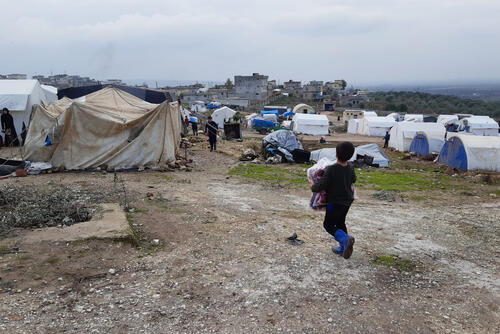
MSF response in northwest Syria
Across northwest Syria, our teams provide high-quality medical care in Idlib and Aleppo governorates. Currently, we support seven hospitals and maternities to which we provide drugs and other medical supplies and cover running costs such as staff salaries.
In Atmeh, we run the only specialised burns unit in the area providing surgery, dressings, physiotherapy and psychological support.
In addition, we run and support 12 general healthcare centres and five ambulances for referrals. We also support 11 mobile clinics serving more than 100 IDP camps. Our teams offer basic healthcare services including treatment of non-communicable diseases (NCDs), maternal healthcare and mental healthcare services in addition to conducting health promotion activities. Community-based surveillance (CBS) has also been established in 14 camps, where 28 community healthcare workers collect information about the humanitarian and medical needs of displaced people in the region.
Our teams also run water, sanitation and hygiene activities, and conduct winterisation activities in almost 100 IDP camps. We distribute hygiene kits, build latrines and toilets, improve sanitation, manage waste collection and supply water tanks.
MSF is also working in northwest Syria to support local COVID-19 vaccination efforts by deploying fixed and mobile vaccination teams. We also work to spread awareness about COVID-19 and counter vaccine hesitancy among the community.
